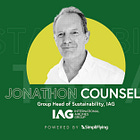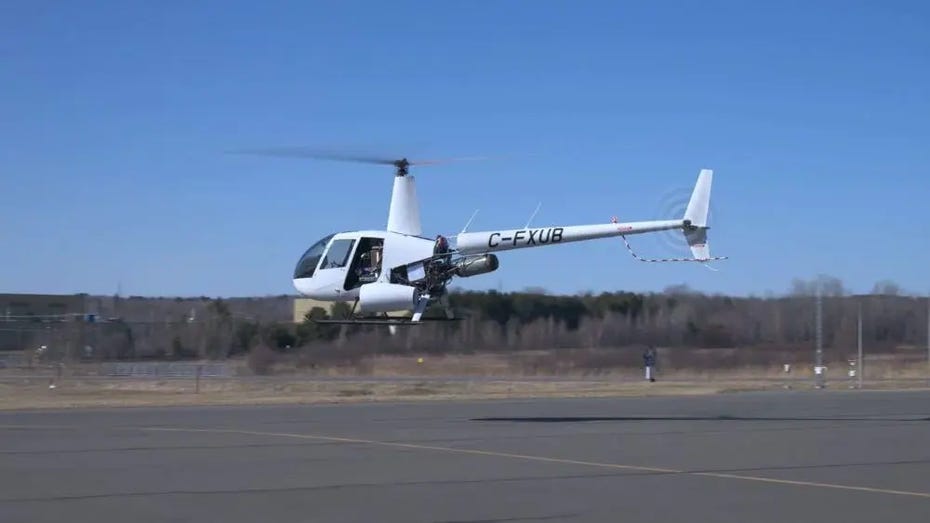#Sustainability20: Microsoft, IAG sign largest-ever Scope 3 SAF deal & more
Weekly Roundup - 11/04/25
Each Friday, we publish a round-up of the 20 most important stories on sustainable aviation. You can see previous editions of #Sustainability20 here.
Industry updates
Microsoft and IAG have expanded their SAF agreement, co-funding 39,000 tonnes to cut 113,000 tonnes of emissions. The fuel will be sourced from Phillips 66 and LanzaJet, supporting long-term decarbonisation efforts.
Qantas and Airbus have pledged $15m to a climate tech fund, targeting SAF and feedstock development. The investment aims to fast-track sustainable aviation solutions and boost Australia’s domestic SAF industry.
The Netherlands has published a SAF roadmap to meet EU blending mandates, targeting 14% SAF by 2030. The plan outlines 18 initiatives to leverage the country’s refining expertise and infrastructure.
The Project Developer Forum has raised concerns with ICAO over CORSIA’s carbon credit eligibility process, warning of a potential shortfall. It urges engagement with project developers to ensure sufficient offset supply.
Delta Air Lines is testing “shark skin” riblet technology on its Boeing 767 fleet to reduce drag and improve fuel efficiency by up to 4%, part of its Sustainable Skies Lab initiative.
CLIMATE WATCH: White House ends funding for key US climate body: ‘No coming back from this’ - The Guardian
The White House has halted funding for the US Global Change Research Program, jeopardising the 2027 National Climate Assessment. Critics warn the move undermines climate science and policymaking.
Infrastructure and operational efficiencies
Fusion Processing has partnered with Construct Invest to deploy automated, zero-emission buses at airports. The CAVstar system promises 30% operational savings and improved energy efficiency compared to manual driving.
The cabin interiors industry is advancing sustainability through circular design and material recycling. Initiatives like Airbus’ eco-efficiency index and the Green Cabin Alliance’s guidelines aim to reduce waste and emissions.
Venice Marco Polo Airport has launched an automated underground waste system, cutting CO₂ emissions by six tonnes yearly. The €2.1m project, part of a €378m green strategy, will expand to 6.5km of piping by 2037.
Naples Airport has introduced UL94 unleaded fuel and sustainable aviation fuel (SAF), alongside electric ground vehicles and solar panels, as part of its commitment to environmental responsibility and noise reduction.
Sustainable Aviation Fuel (SAF)
Neste has begun SAF production at its Rotterdam refinery, boosting global capacity to 1.5 million tonnes annually. Despite financial challenges, the firm plans further expansion to become the world’s largest renewable fuels producer.
XCF Global is preparing for an IPO, banking on SAF market growth. A 15-year deal with Phillips 66 secures feedstock, but IRA uncertainty and state-level incentives remain key challenges.
Global Bioenergies’ SAF has been tested by Safran and ONERA, showing promising results in fuel injection and reduced soot emissions. The findings support its potential for cleaner aviation fuel.
Caltech researchers have developed a solar-thermal reactor to produce jet fuel using sunlight. The modular design could scale up, offering a carbon-neutral alternative to traditional fossil-based aviation fuel.
BP has paused its SAF project in Spain due to slower-than-expected market growth. The decision reflects broader industry challenges in scaling clean jet fuel amid uncertain demand and policy support.
New technology: Electric and Hydrogen
Unither Bioelectronics has completed the world’s first piloted hydrogen-electric helicopter flight in Canada. The modified Robinson R44 demonstrates the potential for zero-emission medical transport and vertical-lift applications.
Japan’s SkyDrive has showcased its SD-05 eVTOL at Expo 2025, targeting commercial flights in Osaka by 2025. The three-seat aircraft aims for 15-40 km ranges as battery tech improves.
H2Fly predicts 350-500 kW hydrogen-electric propulsion systems by 2030, with 1.2 MW units for larger aircraft later. The firm is refining its fuel cell tech amid market uncertainty.
Recaro and Eve Air Mobility have unveiled lightweight eVTOL seats made from aluminium and composites. The design supports Eve’s four-passenger air taxi, set for certification by 2026.
The FAA warns that hydrogen leaks as low as 1-2% could increase cabin material flammability. Microleaks pose detection challenges, highlighting safety hurdles for hydrogen-powered aviation.
H2 Clipper has patented swarm robotics for aerospace manufacturing, enabling autonomous, precision assembly of large structures. The tech reduces infrastructure needs and could revolutionise airship and aircraft production.







